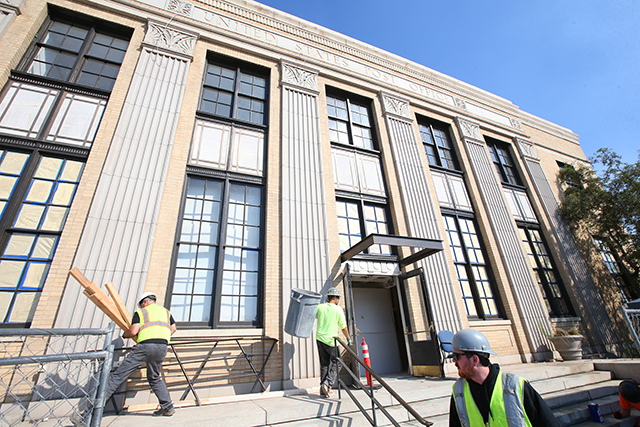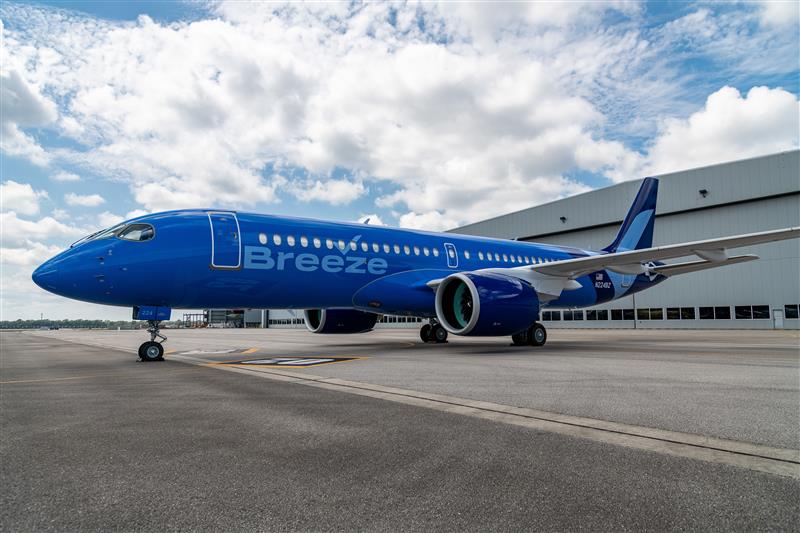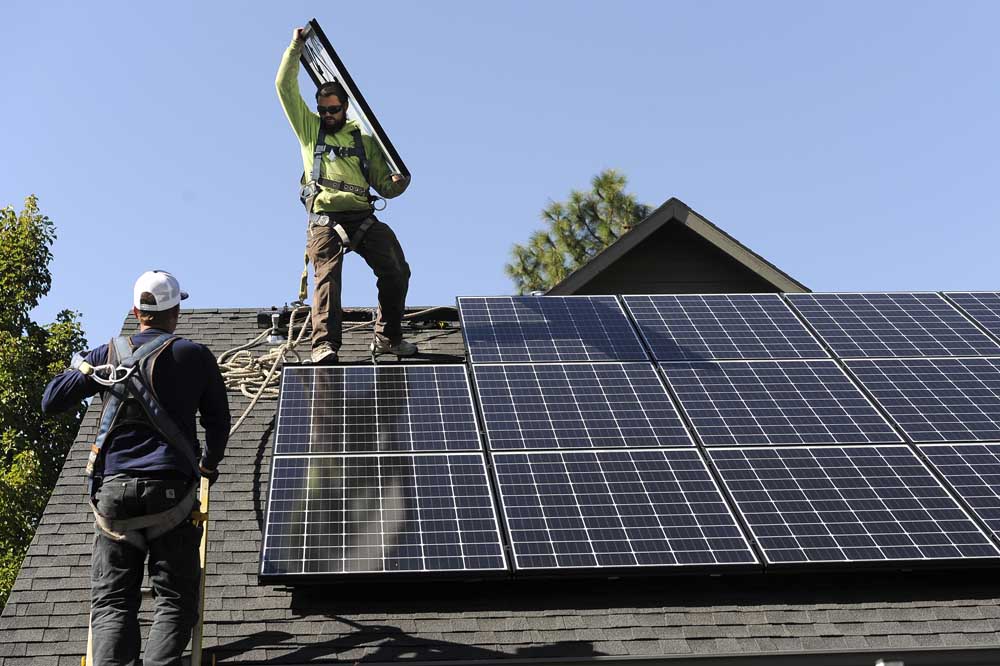Wyden readies anti-tariff push, hears woes of local businesses
Published 8:33 am Wednesday, April 23, 2025

- U.S. Sen. Ron Wyden talks to business representatives about the impacts of tariffs. (Matthew Kish/The Oregonian)
In March, one of Sinotech’s customers paid $87,000 to bring products into the country.
After recent tariff hikes, the customer will pay $311,000, said Richard Hurwitz, Sinotech’s director of sales and operations, at a roundtable hosted on Monday by U.S. Sen. Ron Wyden, D-Oregon.
“Do you mind if I tell the U.S. Senate that next week?” Wyden asked Hurwitz.
Trending
Next week, Wyden expects a vote on bipartisan legislation he introduced that would pull the plug on many of President Donald Trump’s sweeping new tariffs.
On Monday, he heard from Sinotech, which helps companies manufacture in China, as well as about a dozen other Oregon companies, who said the tariffs have led to canceled orders, bruised profit margins and price increases. Layoffs loom.
Wyden characterized the tariffs as an “unforced error” and said his escalating fight to undo them is among the most critical battles of his time as an elected official given Oregon’s dependence on trade.
“I consider this effort I’m making next week one of the most important matters I’ve ever been involved with in my time in public service,” he said. “I think the stakes are that high because for us, trade has been a godsend.”
Wyden likened tariffs to a sales tax and said he assumed businesses will pass the costs to consumers.
That’s starting to happen.
Trending
Bob’s Red Mill is known for making products with Oregon agricultural products, such as wheat. But it also imports ingredients — such as coconut, tapioca and quinoa — that can’t be grown in sufficient quantities domestically to meet demand.
Of the roughly 400 products sold by Bob’s Red Mill, about 100 are made with imported ingredients subject to tariffs, said CEO Trey Winthrop. He estimated the prices of those products will increase 8 to 10%. Some will increase as much as 20%.
On top of that, the company exports to 65 countries, some of which are now hitting U.S. products with tariffs.
“Not only are we paying tariffs coming in, but we’re losing our ability to sell outside the United States,” Winthrop said.
Representatives from other companies on Monday told Wyden they can’t pass along tariff costs, either because they compete against larger companies with more pricing power, or they signed sales contracts before the tariffs were announced.
Authority Medical Group sells medical supplies, including a device that helps move patients between hospital beds. It sources from China, which is subject to a roughly 145% new tariff.
The company doesn’t have much short-term price flexibility because it’s fulfilling existing contracts. Fortunately, said partner Bill Shields, the company stocked up on inventory before this month’s tariff announcement. It has about eight months of inventory on hand.
“We sunk all of our available cash into front-end loading this year,” Shields said. “I’m hoping to wait this out.”
Business representatives told Wyden that sales are slowing, driven by uncertainty about the economy and what’s going to happen next. For now, many tariffs have been paused for 90 days.
“We’re really having a hard time with getting people to commit,” said Mike Gambee, president of Shamrock Building Materials, which imports building supplies and sells them to companies that make products for the likes of Home Depot and Lowe’s.
One of the Trump administration’s goals is to spark more domestic manufacturing. Roundtable participants said that’s at best years away. They said it’s simply too expensive today.
“The cost is literally 10 times more to make it here,” said Cyrus Behbahany, president of API International, which makes metal parts, such as valves and joints, including in China. “It’s not that we can’t do it. It’s just cost prohibitive.”
Even companies that manufacture in Oregon often buy parts that come from overseas, including Rogers Machinery, which buys engine blocks for its air compressors from China.
“We didn’t have a lot of choices to get the quality and durable design we wanted,” said President Chris McKillop.
Exporters said orders are getting canceled as other countries respond with tariffs on imports of U.S. products, including China, which is now levying a 125% charge on American imports.
Grass seed is worth about $1 billion to Oregon’s economy, said Neil Douglas, executive vice president of DLF North America, a grass seed company. He said the industry accounts for about 10,000 jobs, mostly in rural counties.
“Oregon is the center of the universe for grass seed production,” he said.
But increased tariff costs have slammed sales. Douglas estimated about $300 million to $400 million of the state’s grass seed is exported.
“If I extrapolate what’s happened to us, I’d say half of that $300 to $400 million has been canceled,” he said.
Wyden said his legislation, which would repeal the Trump administration’s global tariffs, faces long odds.
“I wish I could give some sugar coating to this,” he said. “This is going to be a huge battle.”








